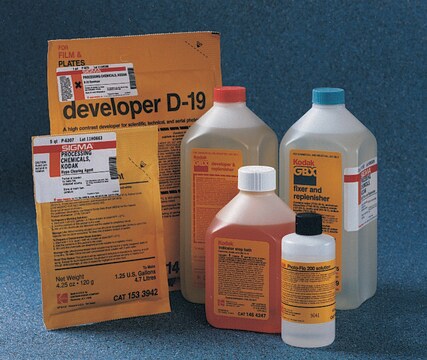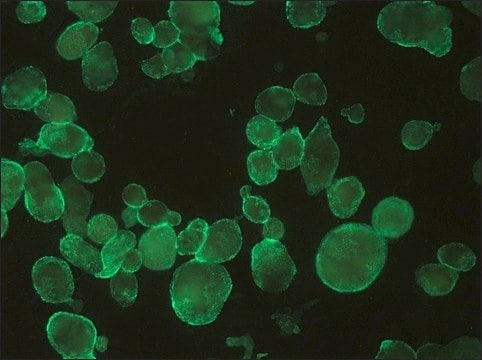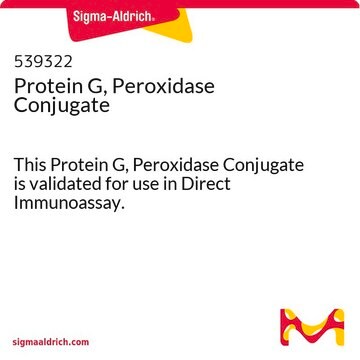AP127F
Kozie przeciwciało anty-Mysie IgG, Fc, koniugat FITC
Chemicon®, from goat
About This Item
Polecane produkty
pochodzenie biologiczne
goat
Poziom jakości
białko sprzężone
FITC conjugate
forma przeciwciała
F(ab′)2 fragment of affinity isolated antibody
rodzaj przeciwciała
secondary antibodies
klon
polyclonal
reaktywność gatunkowa
mouse
producent / nazwa handlowa
Chemicon®
metody
immunofluorescence: suitable
Warunki transportu
wet ice
docelowa modyfikacja potranslacyjna
unmodified
Powiązane kategorie
Zastosowanie
Secondary & Control Antibodies
Fragment Specific Secondary Antibodies
Informacje prawne
Oświadczenie o zrzeczeniu się odpowiedzialności
Nie możesz znaleźć właściwego produktu?
Wypróbuj nasz Narzędzie selektora produktów.
Zwroty wskazujące rodzaj zagrożenia
Zwroty wskazujące środki ostrożności
Klasyfikacja zagrożeń
Aquatic Chronic 3
Kod klasy składowania
11 - Combustible Solids
Klasa zagrożenia wodnego (WGK)
WGK 3
Certyfikaty analizy (CoA)
Poszukaj Certyfikaty analizy (CoA), wpisując numer partii/serii produktów. Numery serii i partii można znaleźć na etykiecie produktu po słowach „seria” lub „partia”.
Masz już ten produkt?
Dokumenty związane z niedawno zakupionymi produktami zostały zamieszczone w Bibliotece dokumentów.
Powiązane treści
Step-by-step protocol for generating apical-out human gut organoids for microbiome, ADME/Tox, viral and gastrointestinal related disease research. See the complete organoid culture protocol.
Nasz zespół naukowców ma doświadczenie we wszystkich obszarach badań, w tym w naukach przyrodniczych, materiałoznawstwie, syntezie chemicznej, chromatografii, analityce i wielu innych dziedzinach.
Skontaktuj się z zespołem ds. pomocy technicznej








